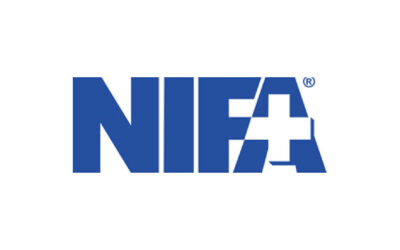
By James X. Stobinski
I want to address nursing competency with an update on recent developments from the American Board of Nursing Specialties (ABNS) meeting in Alexandria, Virginia. The ABNS is a membership group for organizations that support specialty nursing certification.
American nursing has long grappled with how to operationalize competency assessment over the span of a career as noted by Fukada.[1] Ensuring that nurses possess competency is a worthy goal but doing so consistently on a large scale has proven difficult for American nursing. Fukada espouses a holistic definition of competency as a “… as a complex integration of knowledge including professional judgment, skills, values and attitude …”.[1] Tilley, in speaking to nursing competency, tells us that, “… in most states, a nurse is determined to be competent when initially licensed, continuing competency is assumed thereafter unless otherwise demonstrated.” [2] The complexity of assessing competency has resulted in a widespread reluctance to attempt to address any part of this issue and a continuation of the assumptions stated by Tilley.
I am proud to say that some early adopters are beginning attempts to operationalize meaningful aspects of competency assessment beyond initial licensure or certification. At the ABNS meeting in early April 2024 the National Board of Certification and Recertification for Nurse Anesthetists (NBCRNA) presented on their recertification methods.[3] NBCRNA has long been an innovative industry leader in recertification processes. Currently, the NBCRNA incorporates a Continued Professional Certification Assessment (CPCA) in the recertification process to assess four core knowledge areas of nurse anesthesia practice. The CPCA, “… is designed to provide feedback on your strengths and weaknesses in different knowledge areas – similar to a self-assessment.”[4] Importantly, the CPCA is not scored as a Pass/Fail but a score below the performance standard necessitates additional professional education.
The testing of certified nurse anesthetists to ascertain knowledge levels needed for current practice is a meaningful step in assuring competency. This process assesses one significant contributing factor to competency, knowledge, and established improvement plans to address shortfalls. This testing process far exceeds licensure requirements in most states and is among the most rigorous programs used by nursing certification boards. NBCRNA is not content to rest on these considerable laurels. As we were told in Alexandria they will roll out the next iteration of their testing program later this year. That version will feature longitudinal assessments over the span of a career which sets a high bar.
The NBCRNA does have some advantages relative to other licensure and certification bodies. Essentially, nurse anesthetists must be certified to practice and there are a large number of these professionals working in American health care. But, it does demonstrate what is possible in addressing this vexing issue. A key point regarding nursing competency and its assessment is that for a given group, such as perioperative nurses, no one entity is willing to take on the complex issue. NBCRNA has taken this on for their subset of advanced practice nurses, but this still leaves many American nurses to be addressed.
The NBCRNA work gives us a template of what could be done to address competency assessment in American nursing. There are more examples in other nursing specialties and even in other countries. These early efforts give us direction for what is possible on a larger scale. What is missing is the recognition of the value of ongoing competency assessment and a willingness to attempt further progress. What is needed now is for other entities to step up as NBCRNA has done for nurse anesthetists.
– James X. Stobinski, Ph.D., RN, CNOR, CSSM(E), CNAMB(E), is the director of education at the National Institute of First Assisting (NIFA)>
References
- Fukada M. (2018). Nursing Competency: Definition, Structure and Development. Yonago acta medica, 61(1), 1–7. https://doi.org/10.33160/yam.2018.03.001
- Tilley DS. Competency in nursing: a concept analysis. J Contin Educ Nurs. 2008;39(2): 58–64.
- Preston, J. C. & Gill, C. (April 5, 2024). A Look Towards the Certification/Credentialing Horizon. [MS PowerPoint Presentation]. National Board of Certification and Recertification for Nurse Anesthetists (NBCRNA).
- The National Board of Certification and Recertification for Nurse Anesthetists (NBCRNA). (2024). Continued Professional Certification Assessment https://www.nbcrna.com/continued-certification/cpc-assessment








